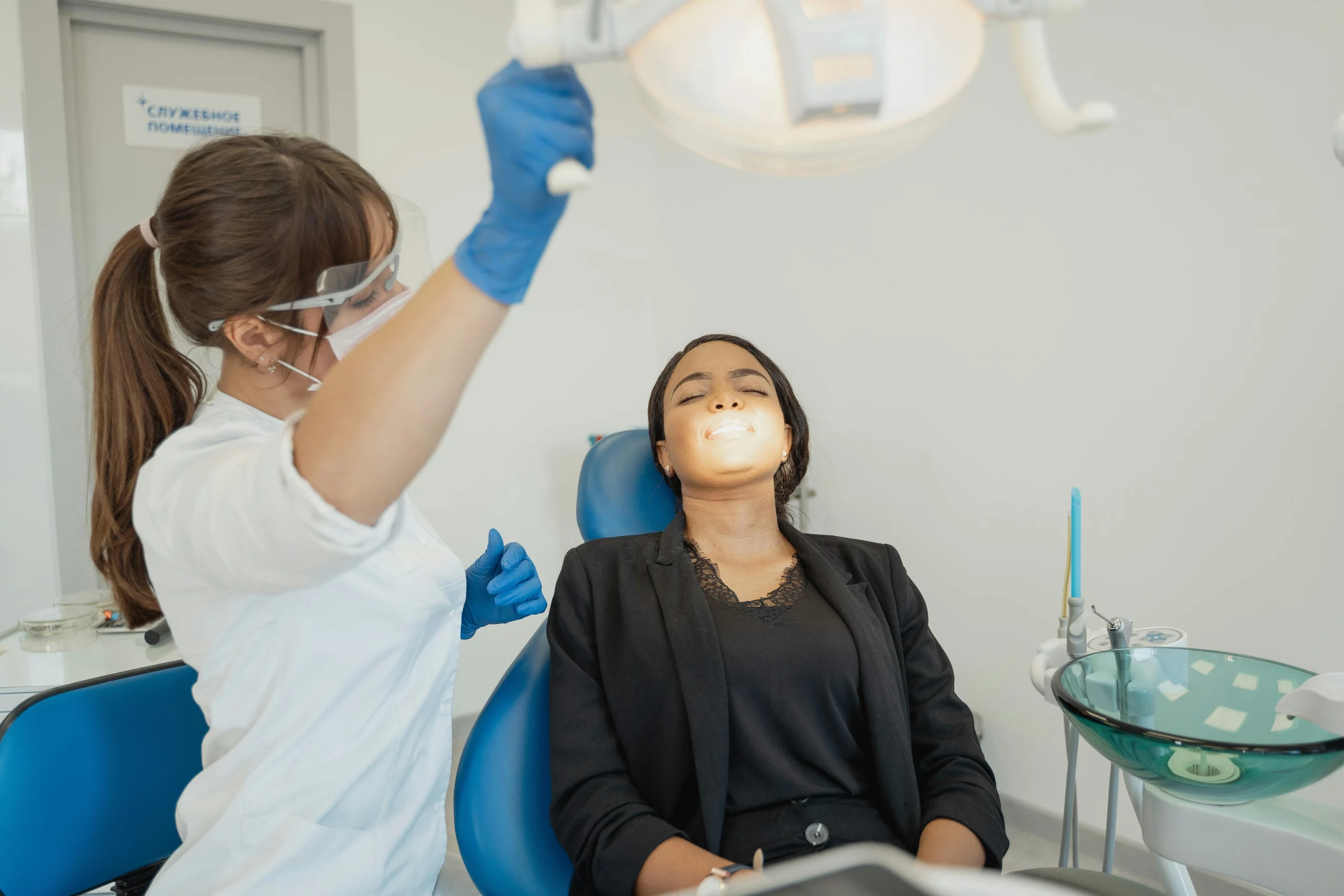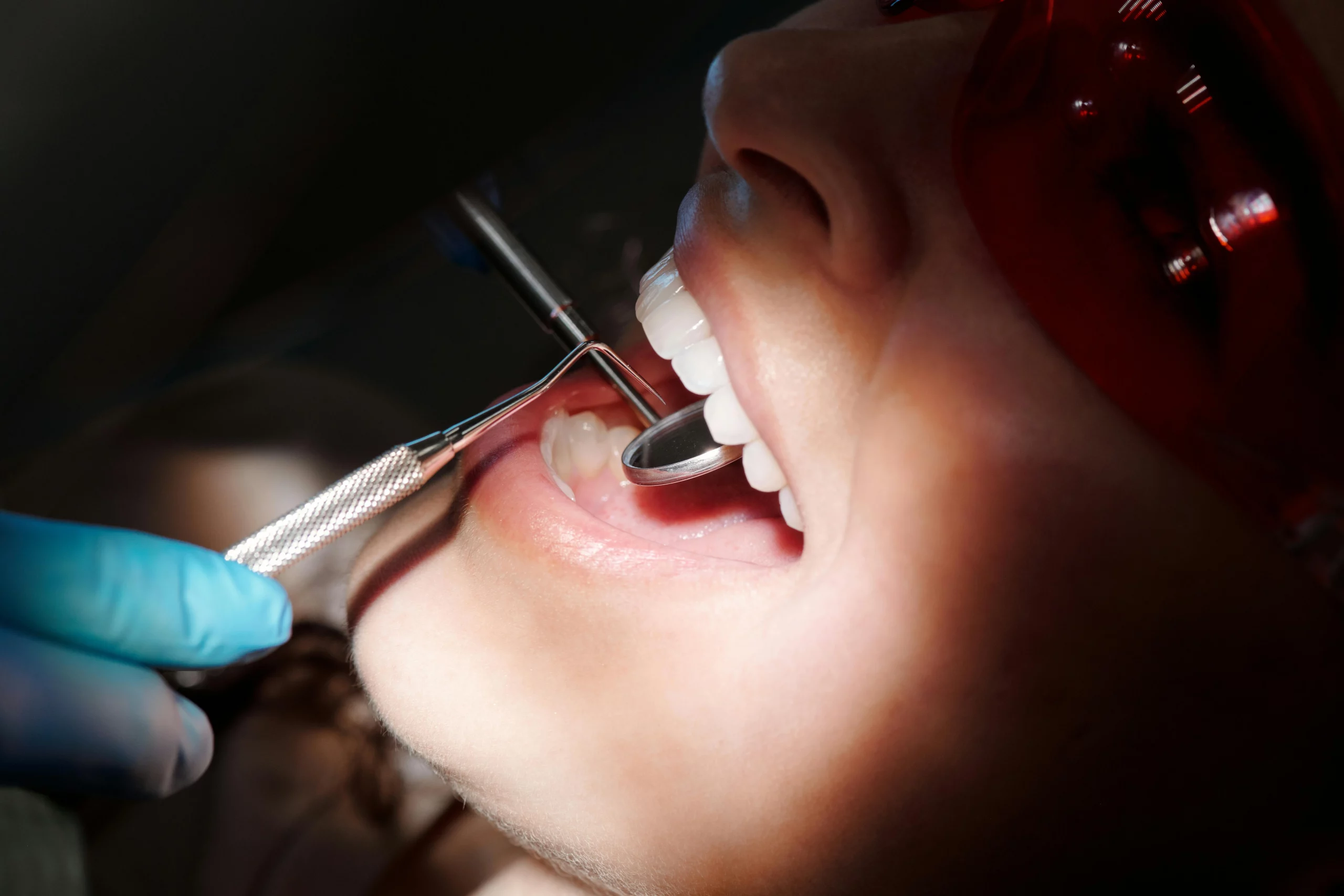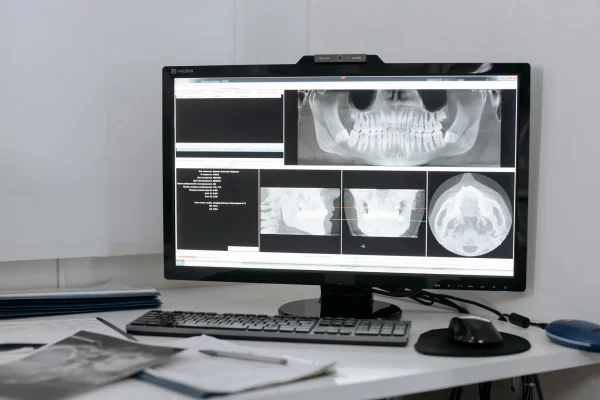An emergency dental exam frequently serves as the essential initial response when individuals encounter unexpected tooth pain, oral trauma, or sudden facial swelling. These incidents can be both distressing and disruptive—ranging from a fractured molar caused by biting on a hard object, to a child experiencing tooth avulsion during a fall, or acute swelling indicative of infection. Dental emergencies are unpredictable and may occur beyond standard office hours, underscoring the importance of being informed about where to seek prompt and reliable care.
Acute oral pain can significantly impact daily functioning and quality of life. Timely intervention not only alleviates discomfort but also mitigates the risk of complications or irreversible damage. Emergency dental services are specifically designed to identify and address urgent dental issues, thereby safeguarding both immediate well-being and long-term oral health.
This article will delineate the criteria for defining a dental emergency, provide strategies for locating a reputable emergency dental provider, outline the procedures typically involved in an emergency dental exam, and offer practical advice to minimize the likelihood of future emergencies. Whether one is presently experiencing discomfort or seeking to be prepared for unforeseen circumstances, a comprehensive understanding of emergency dental protocols can prove invaluable when rapid decision-making is required.
Emergency Dental Exam: Common Reasons to Visit Urgently
Significant dental pain or trauma that interferes with daily activities or disrupts sleep is a strong indicator of underlying pathology. Such symptoms should not be dismissed, as they may signal infections, structural damage, or other urgent oral health conditions requiring prompt evaluation and intervention. At this stage, discomfort shifts from a minor annoyance to a legitimate medical concern necessitating timely, professional care.
Common causes for seeking urgent dental treatment include acute injuries, severe infections, and other conditions that cannot wait for a routine appointment. Recognizing these warning signs is crucial, as early intervention can help preserve long-term oral health and prevent further complications.
Sudden Toothache and Severe Pain
A sudden and rapidly intensifying toothache often indicates underlying issues such as dental decay, an abscess, or nerve involvement. The pain may present as sharp, throbbing, or persistent, and in some cases, it radiates to adjacent areas including the jaw, ear, or head. Prompt emergency dental evaluation is essential to accurately diagnose the cause and administer appropriate interventions, which may include analgesics, professional cleaning, or further treatment planning.
Knocked-Out or Broken Teeth
Accidents are an unfortunate reality, whether they result from athletic activities, everyday mishaps, or unexpected trauma. Dental injuries such as chipped, fractured, or avulsed teeth require immediate professional evaluation to maximize the likelihood of preserving both function and structure. Prompt intervention significantly increases the chances of successfully re-implanting a dislodged tooth or repairing damage without additional complications. Delayed treatment, by contrast, can lead to further issues and reduced treatment outcomes.
Signs of Infection and Swelling
Swelling of the gums, persistent unpleasant taste in the mouth, or the presence of pus may signal an underlying infection or dental abscess. These conditions can escalate rapidly if left untreated, potentially posing significant health risks. An emergency dental exam is essential to identify the cause, alleviate discomfort, and initiate appropriate treatment to prevent further progression of the infection.
Emergency Dental Exam Near Me: Finding Fast Relief

When experiencing severe dental pain, the last thing anyone wants is to spend valuable time searching online or making numerous phone calls, only to discover that offices are closed or unable to address emergencies. Dental pain can be acute, overwhelming, and even alarming, particularly when it is sudden or accompanied by symptoms such as swelling, bleeding, or impaired eating and sleeping. In such situations, having clear guidance is essential.
Being informed about where to seek emergency dental care provides significant reassurance. Understanding the available services, knowing whom to contact, and being aware of what to expect upon arrival can substantially reduce anxiety and uncertainty. This knowledge empowers individuals to act promptly, receive appropriate treatment, and prevent complications that may result from delays. Ultimately, being prepared in advance can determine whether an individual preserves a tooth or loses it, or whether recovery is swift or unnecessarily prolonged.
How G&P Dental Provides Same-Day Emergency Exams
At G&P Dental, we recognize that dental emergencies require immediate attention and cannot be postponed. To address this, we allocate specific appointment slots each day for same-day emergency care. Our experienced staff is equipped to manage a wide range of urgent dental issues, from traumatic injuries to infections and unexplained pain. We are committed to providing both compassionate service and clinical accuracy, ensuring that patients feel understood, properly treated, and ultimately reassured upon leaving our practice.
What to Expect During an Emergency Visit
During an emergency dental exam, efficiency is paramount. Typically, the dentist conducts a targeted visual inspection of the affected area and may employ digital X-rays to evaluate the severity of the issue. Following diagnosis, immediate interventions can include cleaning the site, draining any present infection, stabilizing a fractured tooth, or prescribing antibiotics or analgesics. In certain instances, only a temporary solution is administered, with a subsequent appointment arranged to complete the necessary treatment.
Tips for Preparing Before Your Appointment
If you’re preparing for an emergency dental appointment, a bit of organization beforehand can genuinely streamline the process and improve your care. Consider bringing the following essentials:
- Assemble a comprehensive list of any current medications, supplements, or documented allergies. This information enables your dentist to minimize risk and make informed decisions regarding your treatment.
- Record detailed descriptions of your symptoms. Make note of when the discomfort began, how long it has persisted, and any factors that seem to relieve or worsen the issue. The more specific you can be, the more efficiently your provider can diagnose and address the problem.
- If you have a dislodged tooth, broken crown, filling, or dental appliance, be sure to place it in a clean container or sealed bag and bring it with you. In certain situations, your dentist may be able to reattach or repair the item.
- Remember to bring your insurance card and a method of payment, as emergency dental visits typically require prompt billing and payment.
In the meantime, strive to remain calm. It is advisable to avoid eating or drinking until your evaluation especially if you are experiencing swelling, bleeding, or acute pain. Refraining from food and drink can prevent further irritation and allows your dentist to better assess your condition.
Emergency Dental Exam Cost: What You Should Know

Understanding the anticipated expenses of urgent dental care can significantly alleviate financial anxiety during an already challenging and often distressing experience. When confronted with a dental emergency, uncertainty about the potential costs or affordability of necessary treatment only compounds the stress. Familiarity with expected financial obligations empowers individuals to make timely, informed decisions regarding their care and helps prevent unnecessary delays.
Furthermore, this awareness creates an opportunity to inquire proactively about insurance coverage, available payment methods, or financing plans, thereby reducing the likelihood of unexpected costs at the point of service. Ultimately, being prepared in advance not only safeguards one’s financial well-being but also enables individuals to focus more fully on their recovery and overall peace of mind.
Typical Pricing for Emergency Dental Exam
The cost of an emergency dental exam generally falls within the range of $75 to $200, though this figure can fluctuate based on geographic location, the clinic itself, and the complexity of the dental issue presented. Additional interventions such as diagnostic X-rays, temporary restorations, or extractions may result in higher overall charges. Many dental practices strive to maintain transparent pricing structures, and some extend discounts for patients requiring urgent, same-day care. Despite these efforts, emergency dental procedures often represent a significant financial burden.
Insurance Coverage and Payment Options
Many dental insurance policies provide partial coverage for emergency exam, particularly in cases of pain, infection, or dental trauma. It remains important for patients to verify whether their provider is considered in-network. At G&P Dental, we collaborate with a range of insurers and facilitate flexible payment options, such as installment plans, acceptance of FSA/HSA funds, and same-day discounts. These measures aim to enhance affordability and accessibility for patients seeking urgent dental care.
When Emergency Dental Exam Leads to Further Treatment
An emergency dental exam might only be the first step. For example, if an infection requires a root canal or if a broken tooth needs a crown, your dentist will walk you through a treatment plan with clear pricing. While it may seem overwhelming, getting immediate care can often prevent more extensive (and expensive) procedures later on.
How to Prevent Dental Emergencies with Regular Exams

Dental emergencies rarely arise spontaneously; more often, they originate from minor issues such as early-stage cavities, slight gum irritation, or mild tooth sensitivity that are simple to dismiss. When these problems are left unaddressed, they can progress to severe pain, infection, or significant dental damage, all of which may require urgent care. Preventive dental care is critical in this context. Through routine checkups, professional cleanings, and timely intervention, dental professionals can detect and manage potential concerns before they escalate into emergencies. Adopting a proactive approach to oral health not only preserves the integrity of one’s smile but also substantially reduces the likelihood of needing emergency dental treatment.
Importance of Routine Dental Checkups
Routine dental visits every six months aren’t just a box to check—they’re essential for catching cavities, gum disease, or even early signs of enamel wear before they become major problems. These visits aren’t just about looking; professional cleanings play a key role in maintaining gum and tooth health, reducing the chances of infection or more serious structural issues down the line. In short, regular dental care is a proactive approach that saves you from bigger complications later.
Early Detection of Potential Problems
Routine dental examinations, including the use of X-rays, play a crucial role in identifying minor fractures, incipient cavities, or impacted teeth before they escalate. Early intervention in these cases can significantly reduce discomfort and the likelihood of requiring urgent, invasive procedures in the future. Preventive dental care is not only more comfortable but also more cost-effective and less anxiety-inducing compared to addressing dental issues once they have progressed to emergencies.
Educating Patients on Emergency Signs
Recognizing which symptoms necessitate prompt dental attention can be crucial for both tooth preservation and overall health. At G&P Dental, we emphasize patient education regarding important warning signs—such as persistent tooth pain, unexpected sensitivity, swelling, or unexplained oral bleeding. If uncertainty arises, it is advisable to contact your dental provider. Erring on the side of caution is preferable to postponing necessary care.
Frequently Asked Questions (FAQs)
1. When should I visit the dentist for an emergency dental exam?
You should seek an emergency dental exam if you’re experiencing severe pain, noticeable swelling, signs of infection such as pus, a foul taste, or fever, a broken or knocked-out tooth, or trauma to the face or mouth. These symptoms often point to serious conditions like abscesses, nerve damage, or fractures that require immediate attention. Prompt care can relieve pain, prevent further damage, and improve your chances of saving the affected tooth. Delaying treatment may lead to complications such as spreading infection or permanent tooth loss. It’s always better to get evaluated early rather than wait until the situation worsens.
2. What happens during an emergency dental exam?
The dentist will assess your symptoms, visually examine your teeth and gums, and often take X-rays to diagnose the problem. Treatment may include medication, cleaning, a temporary filling, or another stabilizing measure. The goal is to relieve pain and stop the issue from escalating, with a follow-up scheduled if needed.
3. How much does an emergency dental exam cost?
Costs can vary depending on the dental office, location, and the severity of your condition, but most emergency exams typically range from $75 to $200. This often includes a limited oral evaluation and may or may not cover diagnostic X-rays. If immediate treatment is needed such as a tooth extraction, temporary filling, or antibiotics, additional fees will apply. Fortunately, many dental offices offer transparent, upfront pricing and are experienced in handling insurance claims to help reduce your out-of-pocket expenses. Some also provide financing options or payment plans, making it easier to get the care you need without added financial strain.
4. Can I get emergency dental care without insurance?
Yes, many dental clinics understand that not all patients have insurance and still offer emergency services to those who are uninsured. In fact, it’s common for practices to provide cash discounts, sliding scale fees, or flexible financing plans to make urgent care more accessible. Some offices even have in-house membership programs that significantly lower the cost of exams, X-rays, and basic treatments for a flat monthly or yearly fee. These options can be a lifesaver when facing unexpected dental issues. When booking your appointment, don’t hesitate to ask about available payment solutions—they’re there to help you get the care you need without added financial pressure.
5. What are the best first aid steps before reaching the dentist?
For a toothache, rinse with warm salt water and take over-the-counter pain relievers. If a tooth is knocked out, handle it by the crown, rinse gently (don’t scrub), and try to place it back in the socket or in milk. For swelling, apply a cold compress. These steps can help reduce pain and preserve the tooth until you get professional care.
Tooth pain and dental injuries can feel overwhelming but fast, focused care makes all the difference. If you’re experiencing symptoms that can’t wait, don’t hesitate to schedule an emergency dental exam at G&P Dental.
Our team is ready to help you get relief today. With same-day appointments, gentle care, and a transparent approach to treatment and pricing, we’re here to restore your comfort and peace of mind.
Call now or book online, it’s the first step toward feeling better.


